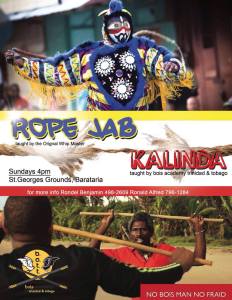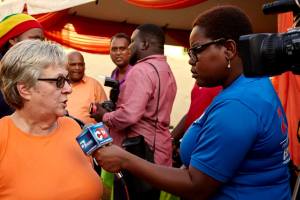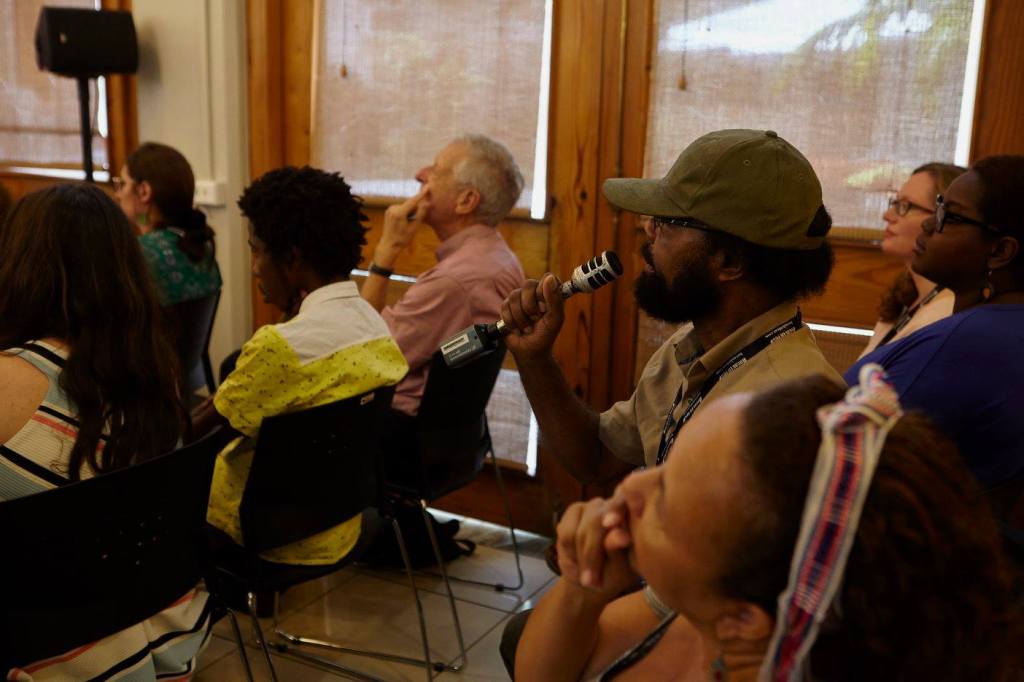Après Carnival-la and we are here in T&T reminiscing on what we’ve just experienced.
This was a different season for me, a returning to centre because I was never a big masquerader. All I did this year on Monday and Tuesday was J’Ouvert with 3Canal which was special. My first was their last as the band is closing the chapter on their mas. The music however will continue.
I also covered the Kings and Queens prelims and semis competition; the latter was also the finals of the Junior Kings and Queens competition. To be frank those shows can be tedious but rewarding. Both nights there was drama with fallen costumes and great stories from the crew backstage from lifelong masqueraders who have to come out to play.
Post Carnival there has a lot of talk of regret and concern about where the Carnival is going. We are always so fearful here about how we are being received by others. While I think there are aspects of the Carnival that concern me deeply, the state of kaiso, the scary lack of spectators on the road on Tuesday. I also think doom and gloom is neither helpful nor realistic.
Trinidad’s Carnival remains a rich expression. Over-commercialisation, however, is a major problem. We need more elements in the Carnival that are done for the sake of culture, and we the people have to appreciate them.
On Friday (16th February 2023) I attended Amanda McIntyre’s talk about her Babydoll mas. She describes the traditional mas character as “a triad representation of a doll, a girl and a woman in a single
performance” that could “be interpreted as either one, two or all of these three femininities.” Often dressed as a Victorian child in frills and a bonnet while holding a cloth doll.
A performer herself, McIntyre writes in the 2021 journal Tout Moun that the character, “carries a doll child and identifies male spectators as being the father of the child while scandalously demanding financial support.” She further explains that the character was first done in the late 19th century by men as parodies of women and “Their parodies were meant to ridicule single mothers for having children without first being married and for not knowing the paternity of their children.” That these mothers were often poor young girls seemed to be lost on the adults criticising them.
Today she is being reclaimed by activists to address child sexual abuse, single motherhood and female sexual health. And on Monday and Tuesday McIntyre lead an entire band of baby dolls, male and female on to the road to ‘play mas”. It is an important inclusion in the local Carnival lexicon and offers hope that more will follow.
A real conversation needs to be had about how we see mas. I think traditional mas has always struggled with its attractiveness to the younger population. It is seen as strange and perhaps uncool. Or maybe seen as artsy or unattainable.
Whatever the reason while we can champion the pretty costumes that everybody loves, they cannot be considered the meat of the Carnival dish. Masquerade requires more! We need pretty, we need the dutty! I want to see the Kings and Queens on the road. I want fashion, I want art, political statements and to be shocked by our mas. And I want more people to embrace the diversity we seem to be losing in the masquerade.
Personally by playing J’Ouvert I felt like I unlocked a new level in my Carnival experience. Also, as I get older I wonder about the options for the masquerader who does not always want to explore her sexy through mas. Amanda McIntyre’s Dolly Ma band had me buzzing in a way I did not expect. I am seeing All Stars Sailor Mas, Etienne Charles’ band and Moko Somõkõw as options for me. They may have a place in my consideration alongside Lost Tribe and K2K Alliance or any of the other pretty mas bands.
And it is my hope that more people see this as a necessary step in the evolution of the masquerade.



